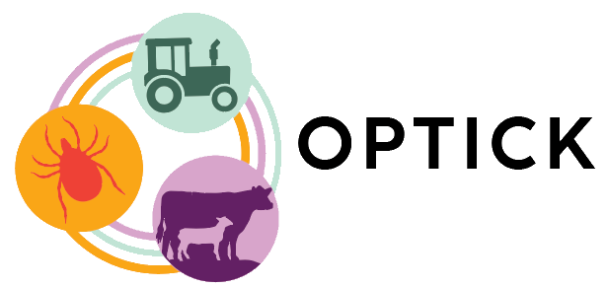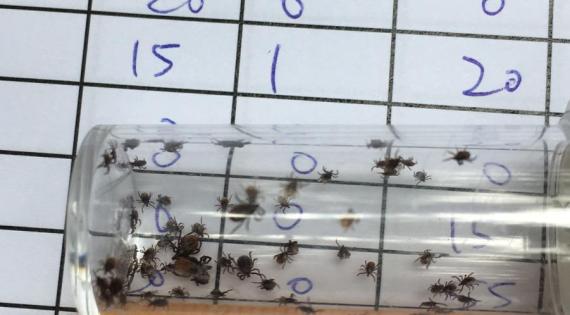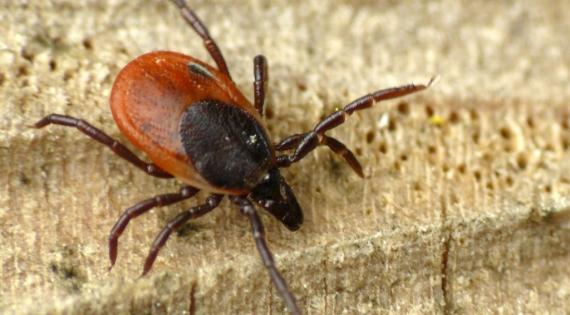OPTICK is a large multi-institution Defra-UKRI funded project focused on understanding and mitigating the changing burdens and impacts of tick-borne diseases in UK farmland. It runs from 2023-2026.

Challenge
Tick-borne disease (TBD) risks to humans and livestock are increasing in temperate regions, including the UK, with severe impacts on livestock and human health, food production and livelihoods. These threats are difficult to manage due to under-reporting, a lack of effective vaccines and may be exacerbated by climate and land use changes such as the planned expansion of woodland on farms. These changes will increase habitat for the key tick vector, Ixodes ricinus, which is widely distributed and expanding in UK woodlands and agricultural land, and can transmit important diseases to humans and animals.
Project Overview
The three-year project, ‘OPTICK’, aims to understand the burdens and impacts of under-reported livestock tick-borne diseases and investigate how landscape changes, farm management and climate conditions increase exposure of livestock and people to ticks and tick-borne disease on UK farms now and in the future. As well as farm surveys and risk modelling to understand these interactions, we will engage with farmers, vets, landowners, Public and Animal Health officials and policy makers to understand how priorities for disease control can align with farming practices and to develop tailored interventions and policy together.
The research will focus on four priority diseases transmitted by Ixodes ricinus (commonly known as the sheep, castor bean or deer tick) that affect sheep and cattle production and human health in the UK:
- Louping ill
- Tick-borne fever
- Babesiosis
- Lyme disease
Louping ill, tick-borne fever and babesiosis can cause severe illness and death in livestock and Lyme disease which can cause illness in humans. Farming and veterinary organisations rank these underreported tick-borne diseases of livestock as “high impact, low prevalence, high priority diseases”.
Lyme disease is a significant and emerging concern to human health in the UK with reported cases increasing 10-fold since 2000 and can cause long-term debilitation.
OPTICK will use a co-production process with stakeholders across sectors to develop ecological interventions, risk maps and guidance and tools from research, to underpin future integrated One Health responses across sectors.

Ixodes ricinus captured from south England (Photo: Jolyon Medlock)

The tick Ixodes ricinus carries the bacteria that causes Lyme disease and Tick-borne Fever in ruminants, the virus that causes Louping Ill in sheep and the parasite that causes babesiosis in cattle. (Photo: WWalas via Wikimedia Commons)
Project Partners
OPTICK brings together researchers from ecology, epidemiology, economics, Public and Animal Health, and social science, from the UK Centre for Ecology & Hydrology (UKCEH), the University of Liverpool, the UK Health Security Agency, the UK’s Animal and Plant Health Agency and the Moredun Institute.
Funding
This project is funded by the Biotechnology and Biological Sciences Research Council (BBSRC), Natural Environment Research Council (NERC), UKRI Tackling Infections Strategic Theme and Department for Environment Food & Rural Affairs (Defra) through grant BB/X017974/1
Further information on the specific objectives, intended outcomes and One Health Systems Approach of OPTICK can be found on the website Research Approach page.
